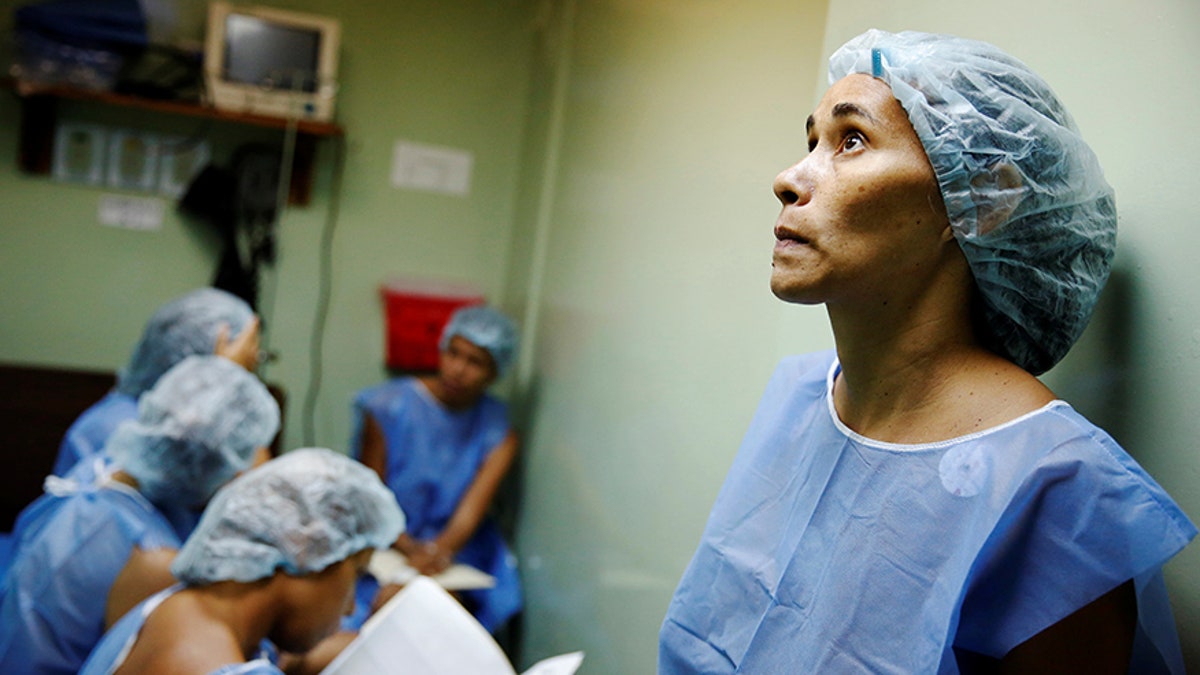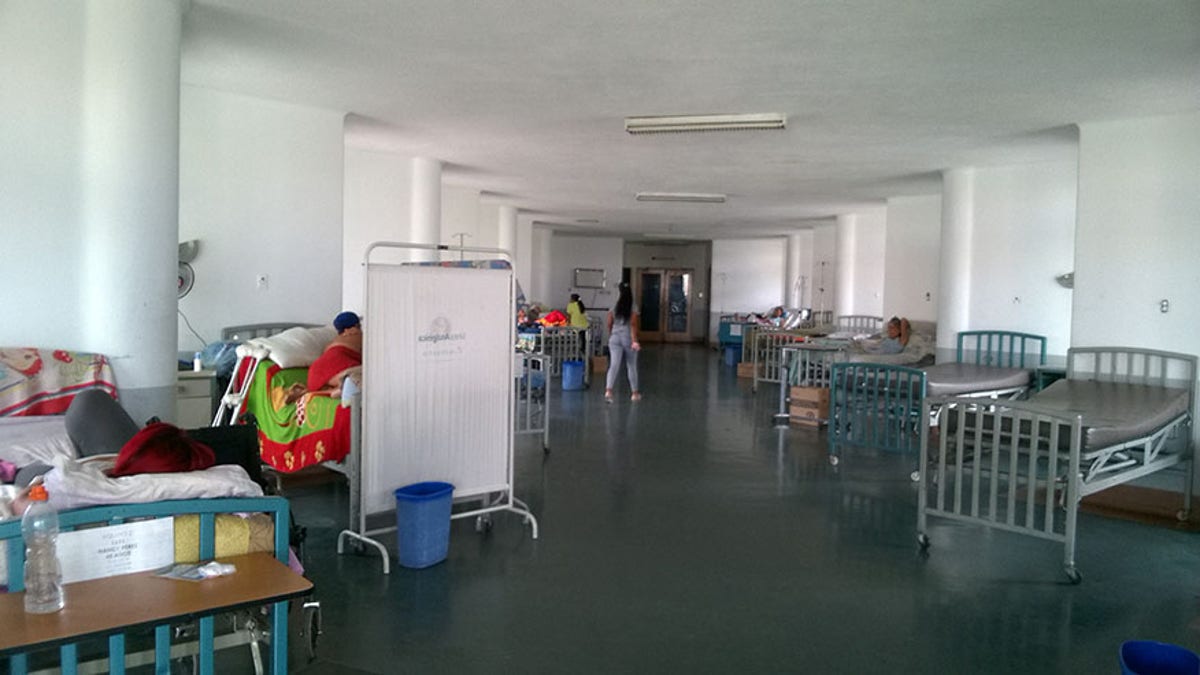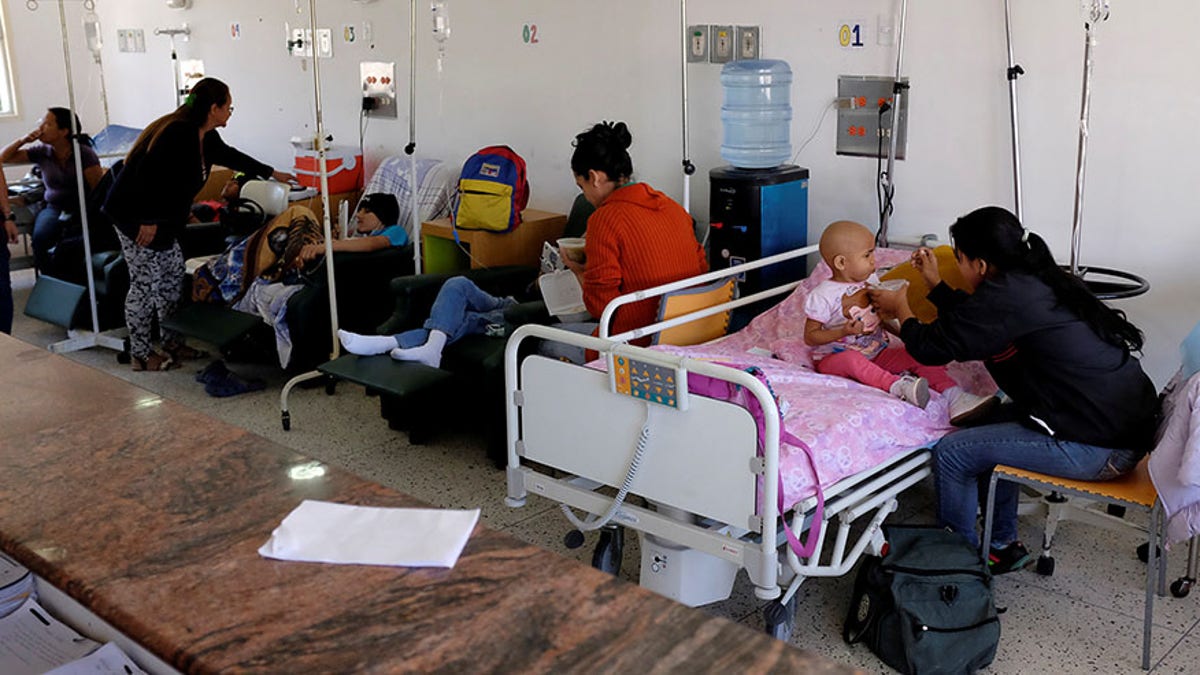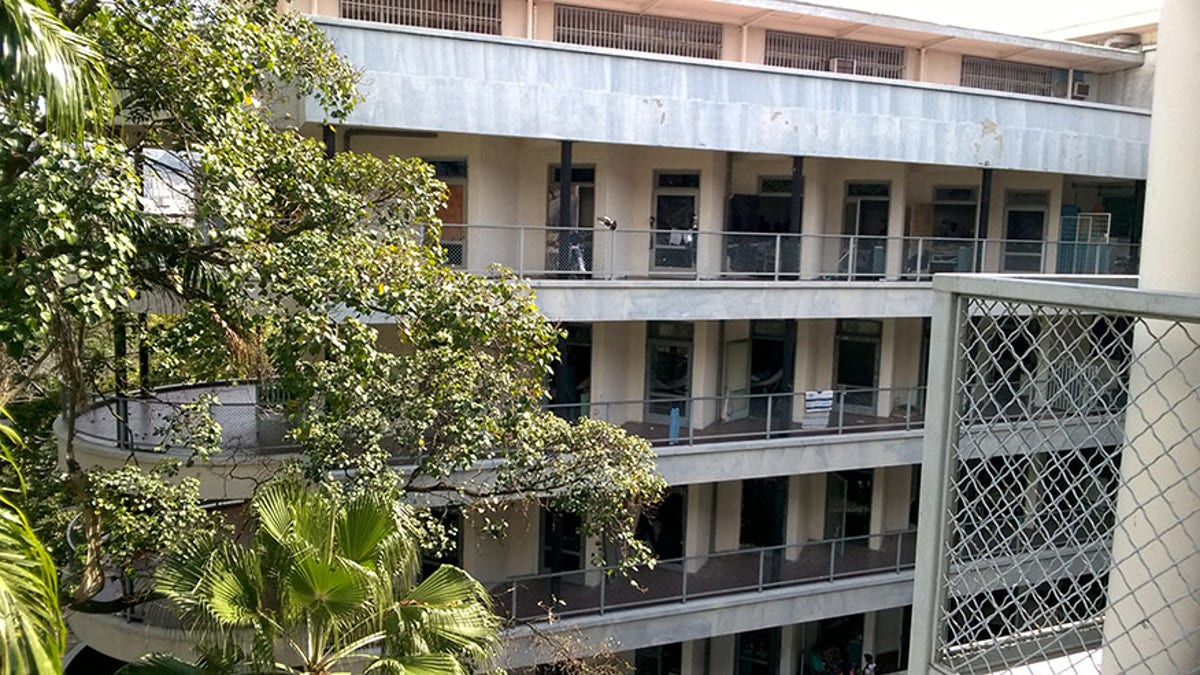
Women wait for sterilization surgery a hospital in Caracas, Venezuela July 27, 2016. (Reuters)
CARACAS, VENEZUELA – Several layers of dirt cover the floor. Pigeons fly about the rooms and across dim hallways where at least half of the lights are out. Sadly, the spooky scene is not from some movie but from one of Venezuela’s main hospitals, the Clinical University Hospital of Caracas (HUC).
Crisis here runs so deep that in the first two weeks of March most surgeries had to be cancelled for lack of running water. Patients wait for months to get a procedure because the hospital and the entire country is increasingly out of basic medication and surgical supplies.
Triple digit inflation and a decaying socialist economic model have left medications ranging from simple anti-inflammatory drugs to chemotherapy medication out of reach for most Venezuelans. Patients are asked to bring their own.

According to the most recent National Survey of Hospitals, 97 percent of services provided by hospitals are faulty. (Fox News/Alex Vasquez)
Antibiotics are a top concern, with many having lost limbs due to severe infections.
“We don’t have antibiotics and it’s difficult to get them. Patients need to visit centers and pharmacies looking for the specific one they need,” said Dr. Jorge Vizcaya, an orthopedic surgeon, to Fox News.
VENEZUELA CLASHES LEAVE ONE MAN DEAD, DOZENS ARRESTED IN CARACAS
“I have witnessed five amputations since I’m here [early January], and most of them were people who couldn’t find antibiotics.”

A mother feeds her child donated soup at the J.M. de los Rios Children Hospital in Caracas, Feb. 22, 2017. (Reuters)
It is currently the case of Nancy Perez, 44, an HUC patient who couldn’t get the antibiotic needed to fight bacteria that entered her body after a fractured femur and pelvis. She lost part of a leg and is at risk of losing all of it.
Needless to say, the prosthesis she needs is not available on Venezuelan soil either.
“I need two types of antibiotics [imipemen and colistina]. One is not in the country, and the other costs 40,000 bolivares per packet of 6 — and I need 224 blisters,” Perez, who is unemployed, told Fox News.
Forty-thousand bolivares, $56 at the official rate, is the monthly minimum wage in the oil-rich country.
According to the Pharmaceutical Federation of Venezuela, 85 percent of drugs are unavailable to Venezuelans, meaning doctors have to make do with the very minimum — sometimes veterinary medications.
In a rare cry for help, last week President Nicolas Maduro asked for the United Nations’ support to alleviate medicine scarcity.
"I have asked the support of the United Nations to deal with the economic and social wounds that have affected our people," he said.
“The United Nations has the world’s most advanced and complete plans to recover the productive capacity of the pharmaceutical industry,” he said.

Outside the Clinical University Hospital of Caracas (HUC). (Fox News/Alex Vasquez)
VENEZUELANS KILLING FLAMINGOS AND ANTEATERS TO STAVE OFF HUNGER AMID MOUNTING FOOD CRISIS
But many other ills afflict the Venezuelan public health system. According to the most recent National Survey of Hospitals, 97 percent of services provided by hospitals are faulty, 75 percent of hospitals suffer from scarcity of medical supplies, and 63 percent reported problems with their water system.
The children are the most affected by the sanitary crisis. According to confidential data gathered by the Ministry of Health leaked to the press, last year 11,000 Venezuelan babies died within their first year if life.
In just one year, the infant mortality rate went from 14.8 deaths per 1,000 live births in 2015 to 19.6 in 2016.
Eylin Salazar is the mother of Juan Andres, a 10-month-old baby born with congenital heart disease. The cardiologists were clear: after one year of life, the heart damage won’t be reversible through surgery.
He is still on the waiting list at the Children’s Cardiology Hospital because only two cardiovascular surgeons are employed there and they can't keep up with demand.
Another main source of pediatric care is the Children’s Hospital JM de los Rios, also in Caracas. According to the head of cardiovascular surgery there, Jorge Sanjines, the center has not performed any heart surgery in six years for lack of funding from the central government
“We only do chest and peripheral vascular operations, but not heart surgery, which is the most needed,” he said.
Sanjines estimates that currently more than a thousand of newborn babies in the country need heart surgery and will end up losing their life for not getting it.
